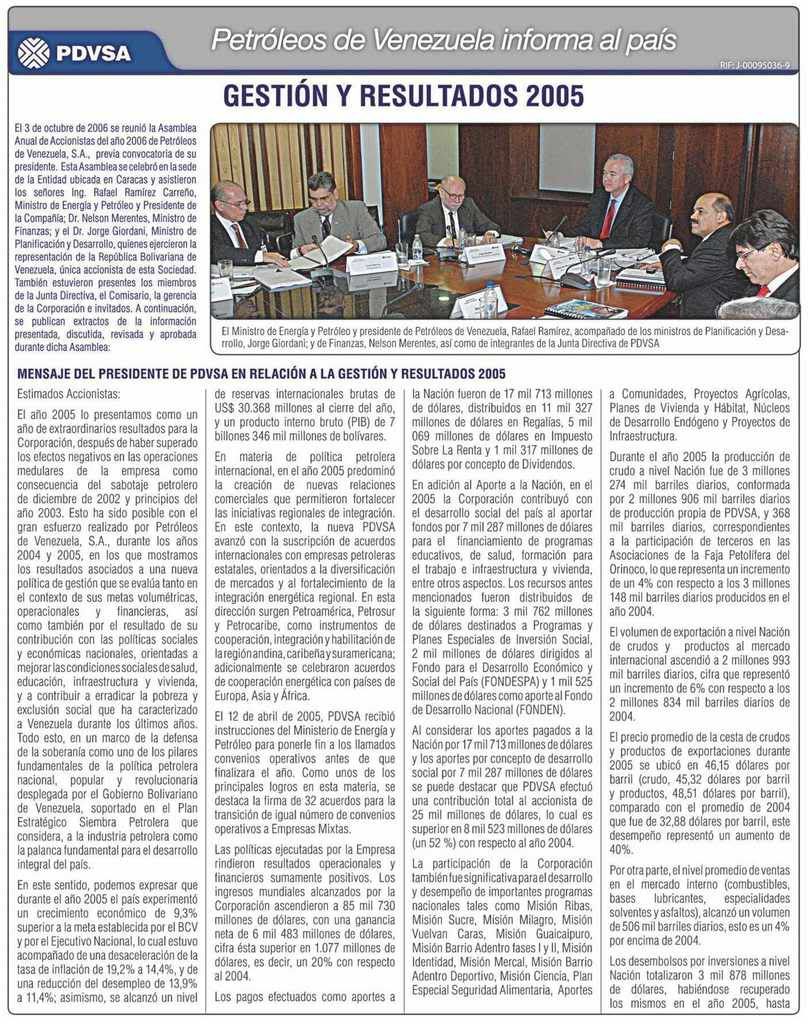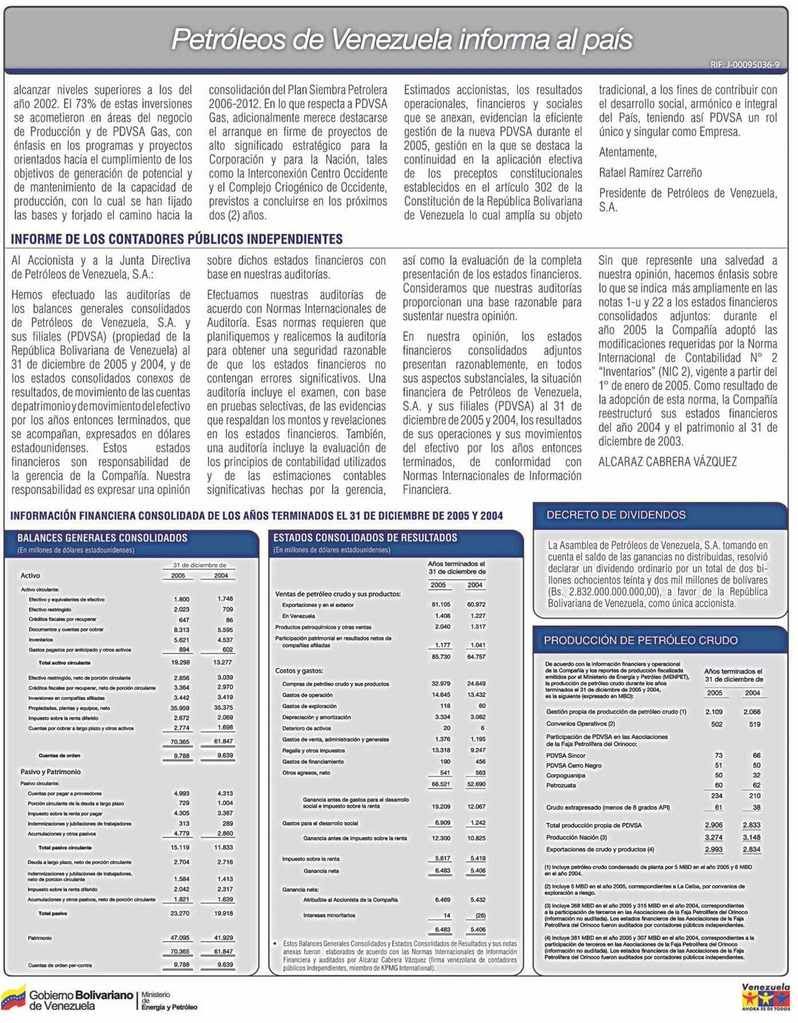Wednesday, October 04, 2006
The bean counters have finished counting
Today PDVSA published in Ultimas Noticias the results of its audited financial statements for 2005. It had previously released its 2004 statements but also republished those numbers so as to allow for comparison.
The very detailed financial statements should be up on the internet before to long and when they are they should provide a wealth of information given how much more forthcoming PDVSA is now then when previous administrations were running the place. I will therefore save my in depth analysis for when I have had a chance to review the actual financial statements.
There are two points I would like to make now though. First it appears PDVSA profits paid to the Venezuelan state were about $21 billion in 2004 which is pretty close to what I had calculated with my back of the envelope calculations. However in 2005 it is reported that PDVSA generated $32 billion for the government. That is significantly higher than the $25 billion I had calculated. Part of the problem is that I used as an average price $42 which is what Petroleumworld.com lists. But PDVSA says it was actually $46 dollars per barrel. So that accounts for some of the difference right there. Also, the tax and royalty rates on a lot of the foriegn oil company operations had increased significantly and I didn't have any way to account for that. My mistakes aside this is good news.
Also, the audited report shows that total Venezulean production was 3.274 Million Barrels per day - or just what Venezuela had said it was all along. Now as we know from all the discussions here international agencies pegged Venezuelan oil production for 2005 at 3.07 Million Barrels per day. So there is a difference, though not a big one. The likely cause for the difference is that the international figures are estimates that can't be expected to be precise. For example,from communication with various people it turns out they make their guestimates by counting how many oil tankers leave the country and estimating how much oil they are carrying. Of course, if domestic consumption of oil rises a person estimating oil production by tanker departures might not catch that as domestically consumed oil doesn't leave Venezuela on a tanker.
Lastly, this puts to bed all the non-sense about PDVSA being untransparent. It is now fully up to date with all its financial statements. The opposition supporters will now have to find something else to whine about.


|
The very detailed financial statements should be up on the internet before to long and when they are they should provide a wealth of information given how much more forthcoming PDVSA is now then when previous administrations were running the place. I will therefore save my in depth analysis for when I have had a chance to review the actual financial statements.
There are two points I would like to make now though. First it appears PDVSA profits paid to the Venezuelan state were about $21 billion in 2004 which is pretty close to what I had calculated with my back of the envelope calculations. However in 2005 it is reported that PDVSA generated $32 billion for the government. That is significantly higher than the $25 billion I had calculated. Part of the problem is that I used as an average price $42 which is what Petroleumworld.com lists. But PDVSA says it was actually $46 dollars per barrel. So that accounts for some of the difference right there. Also, the tax and royalty rates on a lot of the foriegn oil company operations had increased significantly and I didn't have any way to account for that. My mistakes aside this is good news.
Also, the audited report shows that total Venezulean production was 3.274 Million Barrels per day - or just what Venezuela had said it was all along. Now as we know from all the discussions here international agencies pegged Venezuelan oil production for 2005 at 3.07 Million Barrels per day. So there is a difference, though not a big one. The likely cause for the difference is that the international figures are estimates that can't be expected to be precise. For example,from communication with various people it turns out they make their guestimates by counting how many oil tankers leave the country and estimating how much oil they are carrying. Of course, if domestic consumption of oil rises a person estimating oil production by tanker departures might not catch that as domestically consumed oil doesn't leave Venezuela on a tanker.
Lastly, this puts to bed all the non-sense about PDVSA being untransparent. It is now fully up to date with all its financial statements. The opposition supporters will now have to find something else to whine about.


|
